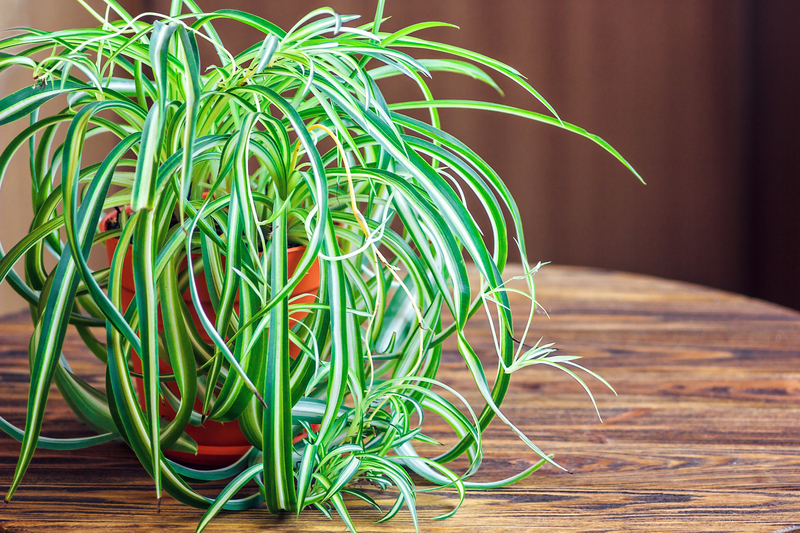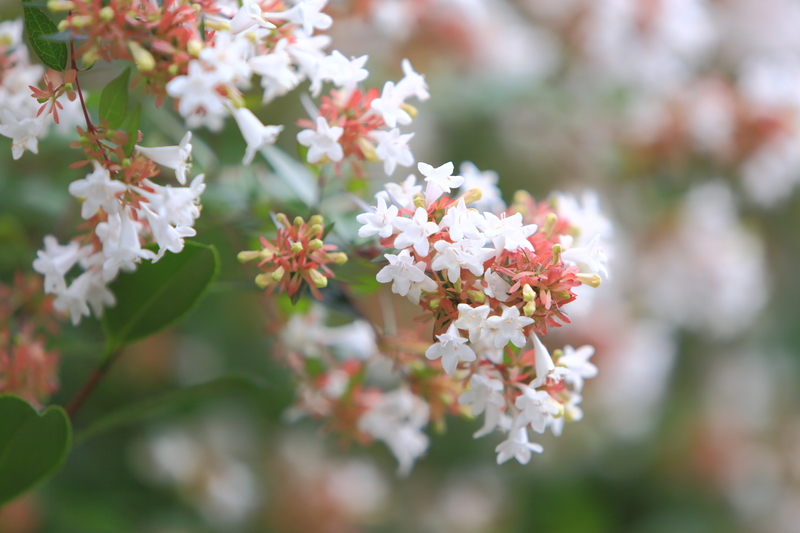From Seedlings to Success: 9 Tips for Gardening Newbies
Posted on 13/09/2025
From Seedlings to Success: 9 Tips for Gardening Newbies
Are you new to gardening? Experiencing the joy of watching your plants grow from tiny seedlings to flourishing wonders is truly rewarding. However, for those just getting started, the path can seem complex and, at times, daunting. Whether you're aiming to grow lush flowers, fragrant herbs, or delicious home-grown vegetables, a few essential gardening tips can set you on the path from beginner to successful gardener.
In this comprehensive article, discover nine proven tips designed to help gardening newbies avoid common pitfalls and nurture their gardens with confidence. Get ready to dig in and sow the seeds of success in your own green space!
1. Choose the Right Plants for Your Space
The first step toward beginner gardening success is understanding your growing environment. Not all plants thrive in every setting, so it's vital to select species that will flourish where you live.
- Consider your climate zone: Check the USDA Plant Hardiness Zone Map or your country's equivalent to identify plants that thrive in your region.
- Assess sunlight hours: Observe the sunlight patterns in your garden. Some plants love full sun; others prefer shade or partial sun.
- Evaluate your space: If you have a small patio or balcony, consider container gardening or vertical planters. For larger yards, you may explore raised beds or in-ground plots.
- Research plant requirements: Look up light, soil, and water preferences for your top choices before purchasing seeds or seedlings.
Pro Tip: Start with easy-care plants like tomatoes, marigolds, beans, or basil to help boost your early gardening confidence!

2. Prepare Your Soil with Care
Healthy plants start with healthy soil. Investing time in preparing your soil pays off with stronger roots and more vigorous growth.
How to Improve Your Soil
- Test your soil: Purchase a simple soil test kit from your local garden center, or contact your extension office for analysis. This will help you understand your soil's pH and nutrient makeup.
- Add organic matter: Mix in compost, well-rotted manure, or peat moss to boost soil fertility and structure.
- Ensure proper drainage: Most seedlings dislike "wet feet." If your garden area retains water, consider raised beds or mixing in coarse sand.
A strong foundation beneath your seedlings often translates to greater gardening success.
3. Start with High-Quality Seeds or Seedlings
For those embarking on their first-time gardening adventure, the temptation to grab discount seeds might be strong, but the quality of your starting materials truly matters.
- Buy from reputable sources: Choose seeds and starter plants from trusted nurseries or online retailers to avoid disappointment and poor germination.
- Check expiration dates: Older seeds may have low viability and uneven sprouting.
- Inspect seedlings: Look for vibrant color, sturdy stems, and healthy roots. Avoid plants with yellow leaves, wilting, or signs of pests.
Choosing top-notch seeds and plants puts you on the fast track to successful gardening for beginners.
4. Learn Proper Planting Techniques
Planting seeds or young plants at the right time and depth is crucial. Read the instructions on seed packets or plant labels carefully.
Key Points for Planting Success
- Seeding depth: Usually, seeds should be planted at a depth about twice their diameter.
- Spacing: Give plants room to grow. Overcrowding can lead to competition for water and nutrients, as well as poor airflow and disease.
- Water immediately: After planting, water gently to settle the soil around the seeds or roots.
- Label your plantings: Use waterproof tags or markers to remember what you've planted where, especially helpful for beginner gardeners.
Remember, excellent results begin with excellent planting habits!
5. Water Wisely and Consistently
One of the most common mistakes made by those new to gardening is improper watering. Overwatering can rot roots and promote disease, while underwatering stresses young plants.
Effective Watering Practices for Gardening Novices
- Water at the base: Direct water to the soil, discouraging disease by keeping leaves dry.
- Morning is best: Water early, so moisture absorbs before hot sun and leaves time to dry, reducing issues like mildew.
- Check soil moisture: Stick your finger an inch or two below the surface. If it's dry, it's time to water.
- Avoid soggy soil: Proper drainage is key. Make sure containers or beds don't stay saturated.
Developing a good watering routine is fundamental for a thriving, beginner-friendly garden.
6. Mulch for Moisture and Weed Control
Mulching is an invaluable technique for new gardeners seeking success. Mulch not only helps retain soil moisture but also suppresses weeds and regulates soil temperature.
- Organic mulches: Choose wood chips, straw, grass clippings, or shredded leaves for most beds.
- Apply 1-3 inches: Spread mulch evenly, but keep it away from stems and trunks to avoid rot.
- Reduce watering needs: Mulch keeps soil damp longer, reducing how often you need to water.
Extra tip: Organic mulches break down over time, enriching your soil and helping seedlings become robust, healthy plants.
7. Keep an Eye Out for Pests and Diseases
Even in the healthiest gardens, pests and diseases can appear. Timely identification and action are critical to protecting your garden's success.
- Inspect plants regularly: Check leaves (especially undersides) for holes, discoloration, or insects.
- Practice good hygiene: Clean up dead leaves and debris to prevent hiding spots for pests.
- Use organic controls: For mild outbreaks, hand-pick pests or use mild solutions like neem oil or insecticidal soap.
- Encourage beneficial insects: Ladybugs and lacewings are natural predators for aphids and other common pests.
Quick, gentle intervention can prevent minor issues from becoming major threats to your garden's success.
8. Feed Your Plants Regularly
Well-fed plants are vibrant and productive. Seedlings and growing plants need access to the right nutrients throughout the season.
- Choose the appropriate fertilizer: Look for blends formulated for your plant types (vegetables, flowers, herbs, etc.).
- Don't over-fertilize: Too much fertilizer can burn roots and damage young plants. Always follow label directions.
- Feed at the root: Apply fertilizer to the soil around the plants, not on the foliage unless the product is meant for foliar spray.
- Consider organic options: Compost tea, fish emulsion, or seaweed extract are gentle, effective ways to nourish your garden naturally.
Tracking your feeding schedule is a smart habit for newbie gardeners seeking consistent results.
9. Embrace Learning & Celebrate Small Successes
Every successful gardener started out as a beginner. Don't be discouraged by setbacks--gardening is a lifelong journey of observation and adjustment.
- Keep a garden journal: Record what you plant, your successes, and lessons learned. This will help you refine your strategies year after year.
- Connect with others: Local gardening clubs, online forums, or community gardens are fantastic support networks for asking questions and sharing tips.
- Experiment: Try new varieties or techniques each season--gardening is as much about creativity as it is about science.
- Celebrate progress: Even the smallest harvests or blooms are wins on your journey from seedling to success!
Remember: Gardening is an exploration. The more you learn and observe, the more skilled you become.

Common Mistakes New Gardeners Make (And How to Avoid Them)
As you begin your gardening journey, be aware of a few frequent pitfalls:
- Overwatering or underwatering: Always check soil moisture before irrigating.
- Neglecting soil health: Invest time in improving your soil--it's the foundation of every great garden.
- Ignoring plant spacing: Crowded plants compete for resources and can develop diseases more easily.
- Planting at the wrong time: Pay attention to recommended planting dates based on your climate and crop.
- Too much, too soon: Start small. Overcommitting leads to frustration and abandoned projects.
By staying mindful of these common mistakes, you'll ensure a more enjoyable and productive gardening experience.
Conclusion: Cultivate Your Success as a New Gardener
Embarking on your gardening adventure is both thrilling and filled with opportunity. With these 9 essential tips for gardening newbies, you can transform your garden dreams into flourishing realities--nurturing healthy plants, developing new skills, and enjoying the beauty and harvests your effort brings.
Ready to grow? Start small, stay curious, and watch as your seedlings transform into garden successes. From preparing your soil and choosing the right plants to celebrating each bloom and harvest, every step you take brings you closer to gardening mastery.
If you're searching for more gardening for beginners resources, explore our related articles and guides. Most importantly, get out there and dig--your own thriving garden journey awaits!
Happy Gardening!
Latest Posts
Designing Engaging and Imaginative Gardens for Children
Vertical Gardening: Harmony in Small Spaces
Design a Carefree Garden: 5 Budget-Friendly Ideas

